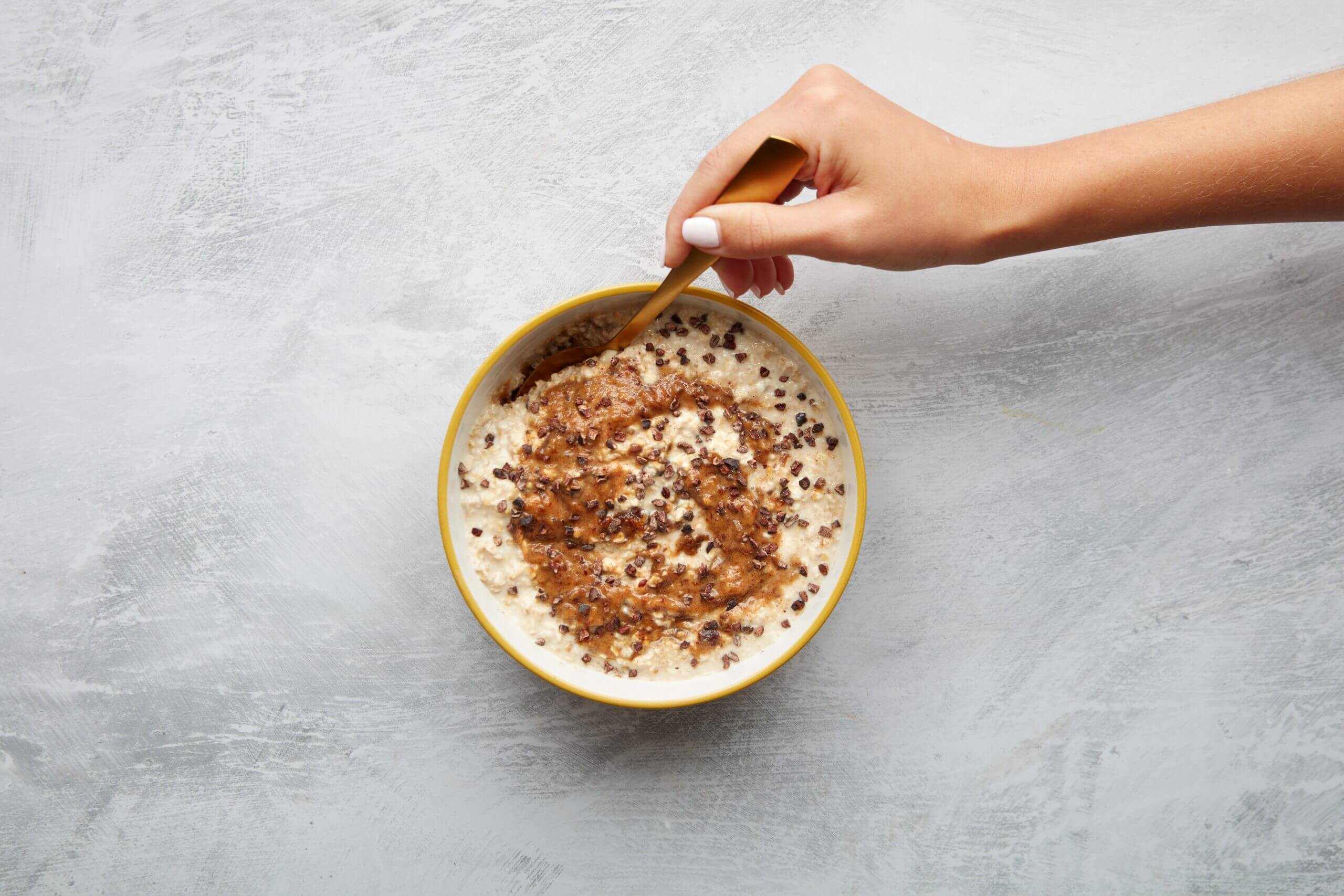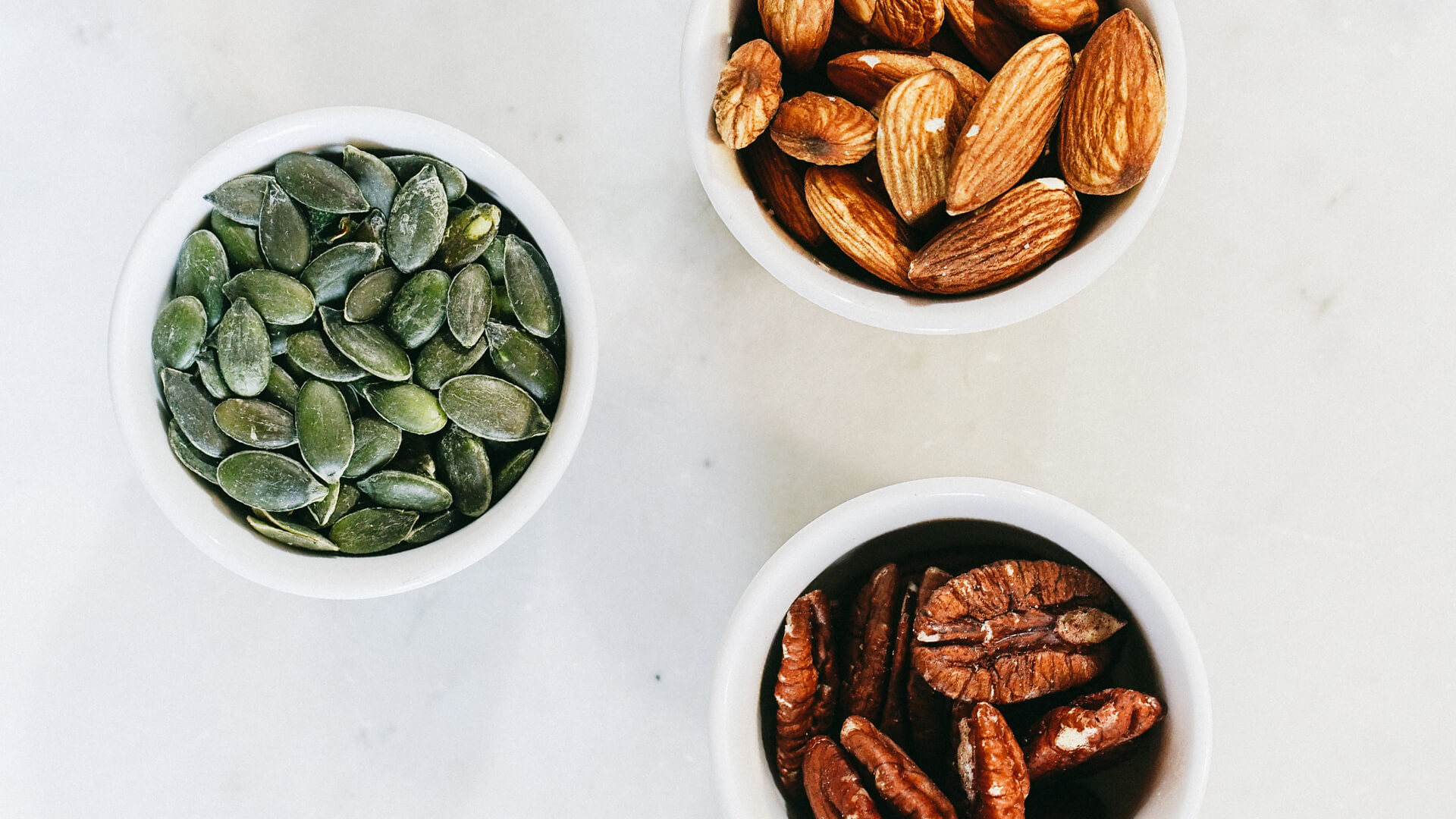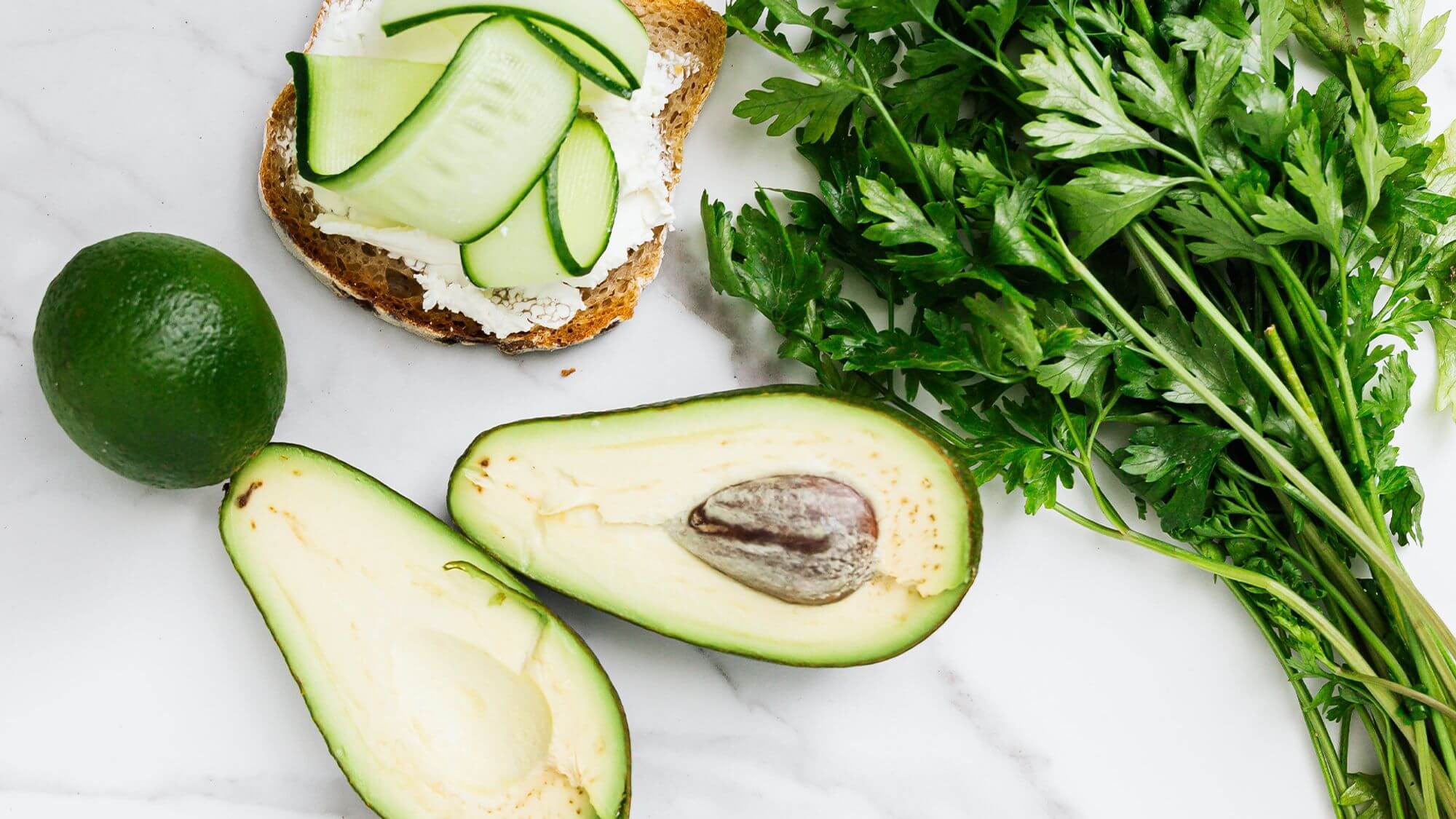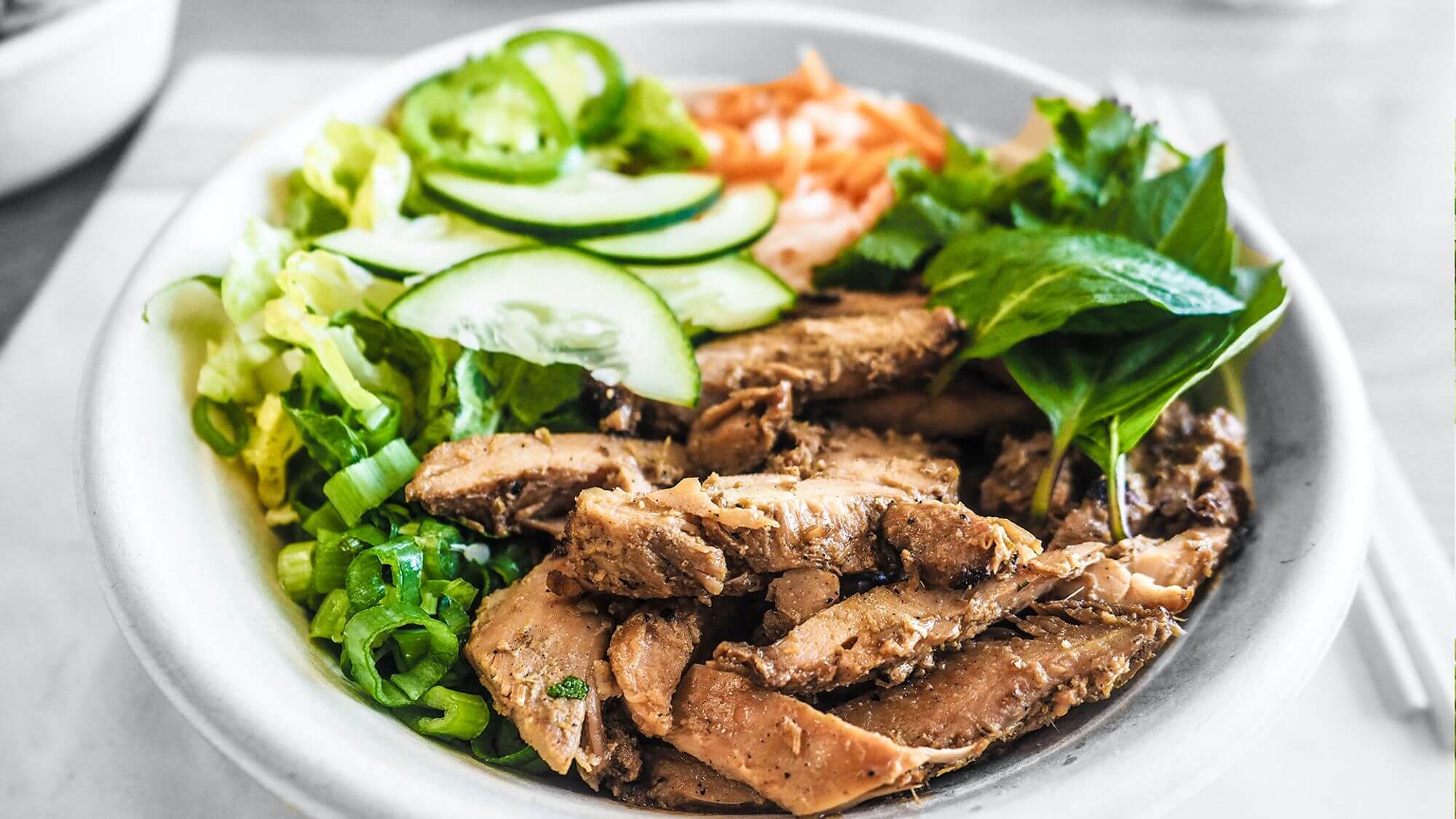Most of us have heard the term "gut health" thrown around, but what exactly does it mean to have a healthy gut, and why does it matter so much?
For starters, about 70% of the immune system is housed in the gut, and research shows that the gut microbiome can affect just about every organ in the body. The gut also breaks down food and absorbs vital nutrients our bodies need to stay happy, energised, and thrive.
With nearly 58% of people experiencing gut health issues and 45% of those dealing with chronic symptoms lasting three months or more, it's clear that digestive wellness deserves more attention.
Adding gut-friendly foods to your diet is one simple yet powerful way to support your gut. Plenty of foods can give your gut a boost, such as probiotic powerhouses like yoghurt and kimchi or fibre-rich veggies that help keep your digestion in check.
We'll show you how easy it is to incorporate these into your meals and how small tweaks can have a big impact on your digestive health.
Top 10 foods for gut health
These gut-loving foods are not only great for your digestion but also delicious and easy to work into your routine.
1. Yoghurt
Delicious and nutritious, yoghurt is rich in probiotics and provides an easy way to get beneficial gut bacteria. With live and active cultures, like Lactobacillus and Bifidobacterium, yoghurt can improve nutrient absorption and ease common digestive problems, including constipation and diarrhoea.
Choose plain, unsweetened varieties or Greek yoghurt labelled with live cultures for maximum benefits. Incorporate yoghurt into your diet by adding it to smoothies, pairing it with granola and fruit or using it as a base for creamy salad dressings.
2. Kefir
Kefir is a fermented dairy drink high in as many as 61 unique species of gut-supporting probiotics. Consumed for its nutritional and digestive health benefits for centuries, its popularity in the natural health community in Western countries has soared in recent years. It is considered by many to be even more nutritious than yoghurt.
Made with kefir grains, it contains beneficial strains like Lactobacillus plantarum that can survive the digestive process and benefit the gut directly. Swap milk for tart, tangy kefir in overnight oats, or enjoy it as a breakfast smoothie with a sprinkle of cinnamon for a gut-friendly option that adds plenty of probiotics to your morning routine.
3. Kimchi
A staple in Korean dishes, Kimchi is a traditional side dish consisting of fermented cabbage, Korean radish, spices, scallions and other fermented vegetables. Rich in fibre that can help you maintain a healthy digestive system, Kimchi also contains probiotics and is thought to reduce the unpleasant symptoms of IBS and colon inflammation.
Enjoy Kimchi in fried rice, as a topping for tacos, or alongside grilled meats for a tangy kick. This bold, spicy addition also pairs beautifully with nutrient-dense meals in Frive’s meal plans.

Frive’s Pistachio & Raspberry Cacao Overnight Oats
4. Sauerkraut
Sauerkraut, a tangy fermented cabbage dish, is packed with probiotics that improve your gut flora and reduce IBS symptoms. Popular in Central and Eastern Europe for centuries, Sauerkraut is also a great source of fibre, which promotes regular bowel movements, decreasing the risk of constipation.
To maximise its gut-boosting properties, choose unpasteurised sauerkraut or try making your own, as pasteurisation can destroy probiotics. Famous for its zesty, tangy, sour flavour, pair sauerkraut with grilled chicken, potato dishes, salads or even as a flavour-packed addition to sandwiches and cheese boards.
5. Garlic
Delicious in just about everything, garlic is a prebiotic food with both antibacterial and antifungal properties. Its inulin and fructooligosaccharides (FOS) support gut microbiota diversity, while its anti-inflammatory properties promote overall digestive health.
However, it's worth mentioning that garlic can also make some stomach issues worse and isn't recommended to those with IBS who are on Low Fodmap diets. Roast garlic as a flavourful addition to vegetables, mix it into dressings or use it to enhance soups and stews.
6. Onions
Like garlic, onions contain prebiotics like insulin and fructans, which can help increase the number of friendly bacteria in your gut. A highly nutritious vegetable, onions are good for your gut health and are also thought to reduce the risk of conditions like type 2 diabetes, cardiovascular disease, and osteoporosis.
Even better, just half of a medium onion counts as one of your five-a-day, making it a simple yet effective choice for gut health. Choose from red, white or brown varieties to add flavour and texture to your soups, stews and salads whilst giving your gut microbiome a healthy boost.
7. Bananas
Rich in prebiotic fibres, which stimulate the growth of good gut bacteria, bananas are gut-health superstars, normalising bowel movements and reducing bloating.
Green bananas help draw moisture out of stools and can be used to treat diarrhoea symptoms. Fully ripe bananas contain soluble fibre that can help treat constipation. Pair bananas with nut butter for a satisfying snack, slice them over porridge, or add them to smoothies.
8. Almonds
Adding a handful of almonds a day into your diet is an effortless and affordable way to improve your gut health. Almonds are rich in fibre and increase the production of short-chain fatty acids known as butyrate, which are a major energy source for colonocytes-cells that line the colon.
Enjoy almonds as a snack, sprinkle them over salads or blend them into smoothies for a nutritious crunch in balanced meals.
9. Oats
Oats are loaded with beta-glucan, a type of soluble fibre that supports gut bacteria and improves digestion. When consumed, beta-glucan partially dissolves and forms a gel-like substance in the digestive tract, which, among many other things, helps increase the growth of good bacteria.
Thanks to their fibre-rich outer layer, oats can help relieve constipation and have been found to improve gastrointestinal symptoms in people with ulcerative colitis. Incorporate oats into your diet by starting your day with a bowl of porridge topped with fruit and nuts, blending them into smoothies or adding them to baked goods like muffins.
10. Leafy greens
Leafy greens like spinach, kale and Swiss chard are rich in fibre and contain a unique sugar molecule, sulfoquinovose (SQ), that feeds beneficial gut bacteria. They also keep bad bacteria in check by limiting their ability to colonise the gut and outcompeting them for space.
Add leafy greens to salads, blend them into smoothies or sauté them with garlic and olive oil for a quick and nutritious side dish.
Leafy greens are also known to support hormonal balance, making them a smart choice for those interested in hormone balancing foods.

Frive’s Strawberry & Lime Chia Pudding
How to incorporate gut-friendly foods into your diet
Adding gut-friendly foods to your meals doesn’t have to be complicated. With a few easy swaps and minor changes, you can give your digestion the boost it needs to keep your gut feeling great. If you're worried that your gut might be in trouble, have a read of our guide "Signs of an Unhealthy Gut" to find out more.
Start with easy swaps
Replacing everyday ingredients with gut-friendly alternatives is an effortless way to upgrade your meals. Swap white bread for wholegrain or sourdough, use kefir instead of milk in your smoothies and replace sugary snacks with almonds or bananas. Incorporating a variety of vegetables like leafy greens and onions into your meals adds fibre and prebiotics to support healthy gut bacteria.
Plan gut-friendly meals
Meal planning can ensure your diet consistently includes probiotic and prebiotic foods without being overwhelming. Add yoghurt or oats to your breakfast, toss kimchi or sauerkraut into lunch salads and include garlic or onions in your dinner recipes.
Frive’s meal plans make it easy by offering balanced, chef-made meals packed with healthy, gut-friendly ingredients (that use no ultra-processed additives or ingredients) like oats, kefir and fibre-rich leafy greens.
One Frive user noticed an improvement in their gut health when swapping to Frive meal plans:
“The meals are really well varied, good portions, and I’ve noticed improvements to my gut health due to their efforts to incorporate fruit, vegetables, nuts and seeds into the meals.”
Hydrate to support digestion
Hydration is vital in keeping your digestive system running at its best. Water helps fibre work its magic—it softens stools, keeps you regular and helps your body absorb essential nutrients from your food.
Pair your gut-friendly meals with plenty of water throughout the day to enhance their benefits and keep your digestive system happy and balanced.
Diversify your diet
Eating a variety of gut-friendly foods can help improve gut microbiota diversity. Aim for 30 different plant-based foods per week, including fruits, vegetables (tenderstem broccoli is a great choice), nuts, seeds and grains, to feed a wide range of beneficial bacteria and keep your microbiome perfectly balanced.
Make simple additions
You don’t need to overhaul your diet overnight—minor tweaks add up and can have a significant impact over time. Start small by adding a spoonful of sauerkraut to a salad, blending kimchi into a fried rice dish, or topping porridge with green bananas and almonds.
Additional lifestyle tips for improving gut health
A gut-friendly diet is just the beginning, complementary lifestyle changes can amplify its benefits and help maintain a balanced digestive system. Let's read on to find out how you can reset your gut health:
Staying hydrated
Hydration is essential for a healthy digestive system. Water helps with several gastrointestinal processes—it breaks down food, supports nutrient absorption and promotes waste elimination to keep common issues like constipation at bay. Staying well-hydrated also keeps your gut bacteria balanced and helps your intestines do their job properly.
Make hydration a priority by aiming for 6–8 glasses of water daily. Start your morning with a glass of water, choose water-rich foods like cucumbers and watermelon and limit dehydrating beverages like caffeine and alcohol. Staying hydrated alongside a gut-friendly diet helps ensure your digestive system stays on track.
Managing stress levels
Chronic stress can disrupt the equilibrium of your gut microbiome, which can lead to gastrointestinal issues like IBS and inflammatory bowel disease.
Have you ever felt stomach pains right before giving a presentation? That’s the gut-brain connection at work. Stress can make the gut more sensitive and increase contractions and fluid secretion, leading to symptoms like intestinal pain, bouts of diarrhoea or even leaky gut.
Incorporate stress management techniques like deep breathing, meditation or yoga to reduce the effects of stress on your digestive system. Prioritise 7–8 hours of quality sleep each night to support overall health, as lack of sleep can exacerbate stress and anxiety and further impact your gut.
Getting regular exercise
Regular physical activity boosts gut health by improving digestive tract circulation and encouraging beneficial bacteria growth. Don't forget—your digestive tract is also a muscle, meaning exercise also helps the gut stay active and move everything along at the right pace. Regularly moving your body can also reduce the risk of digestive orders like inflammatory bowel disease by increasing the diversity of your microbiome.
Aim for at least 30 minutes of moderate exercise most days of the week, like walking, cycling or swimming. For additional motivation, join a fitness class or involve friends and family to make exercise a regular part of your routine.
If you'd like to find out more about exercising and muscle building, have a read of our guides "Best Foods for Muscle Recovery" and "How to Lose Weight and Gain Muscle".
Meal prepping your gut-friendly meals
Meal prepping makes it easier to stick to a gut-friendly diet. Planning ahead ensures you regularly include foods like yoghurt, oats, leafy greens, good proteins (Such as chicken and prawns) and garlic in your routine. Frive takes the effort out of meal prep with chef-made, gut-boosting meals delivered fresh each week. If you’re wondering how long does meal prep last, most meals stay fresh for 3–5 days. Not sure how to meal prep? Start by batch-cooking fibre-rich dishes and incorporating a variety of probiotic and prebiotic foods into each meal.

What is the best food to heal your gut?
The best food to heal your gut depends on your personal preferences and health goals. Probiotic-rich options like yoghurt and kimchi are excellent for balancing gut bacteria, while fibre-packed foods like oats and leafy greens fuel beneficial microbes and support digestion.
With Frive’s delicious meal plans, improving your diet and boosting your gut health is easier than you think. Transform your health with chef-prepared, nutritionally balanced meals packed with gut-loving ingredients like fibre-rich veggies, nuts and seeds. Natural (no ultra proceeded ingredients or additives are used), freshly cooked and delivered twice a week straight to your door, create your delicious weekly meal plan and achieve your health goals with nutritionist-approved meal prep today.
For a limited time, try Frive at a discounted rate today!
FAQs
What is the 7-day gut reset?
The 7-day gut reset is a short-term plan that involves eliminating potentially triggering foods like sugar and processed foods to reduce inflammation and reset your digestive system. The diet typically consists of whole foods that are rich in fibre, probiotics and prebiotics to re-balance your microbiome alongside stress-reduction techniques and getting enough sleep.
What are the super six foods for gut health?
The “super six” foods for gut health include wholegrains, vegetables, nuts and seeds, fruit, legumes and herbs and spices. Incorporating a variety of these foods from these six different plant groups weekly promotes balanced digestion and improved gut health.
What heals the gut the fastest?
Quickly healing the gut involves a combination of consuming probiotics (like yoghurt and kefir), prebiotics (like garlic and onions) and fibre-rich foods (like oats and leafy greens). Staying hydrated, lowering your stress levels and avoiding processed foods also play a crucial role and should be used in combination with dietary changes.



